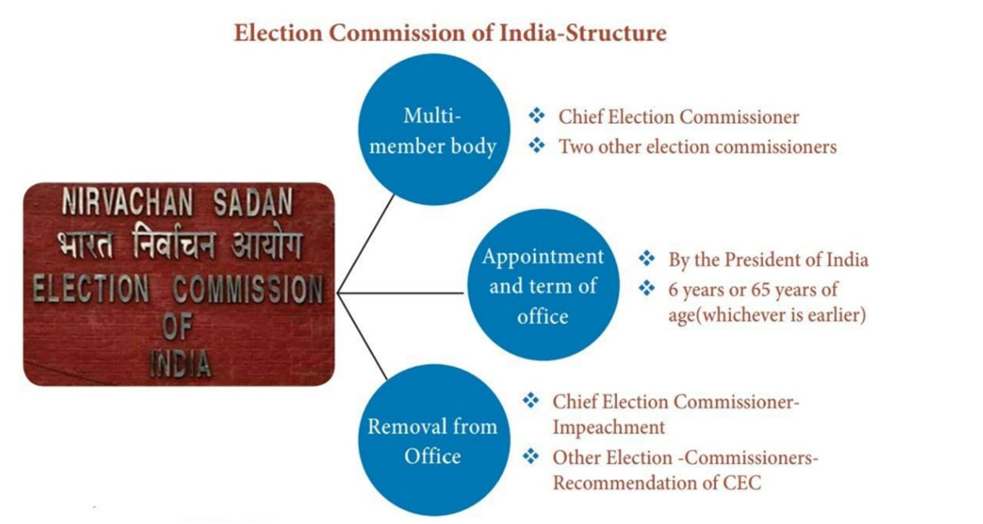Free Courses Sale ends Soon, Get It Now


Free Courses Sale ends Soon, Get It Now



Copyright infringement not intended
Context - The Election Commission of India to lead ‘Summit for Democracy’ on ‘Election Integrity’ in partnership with 100 Democratic Countries.
Details
Election Commission of India

Copyright infringement not intended
Appointment of Election Commissioners
Powers of the Election Commission
Functions of the Election Commission
https://www.pib.gov.in/PressReleasePage.aspx?PRID=1826081
© 2024 iasgyan. All right reserved